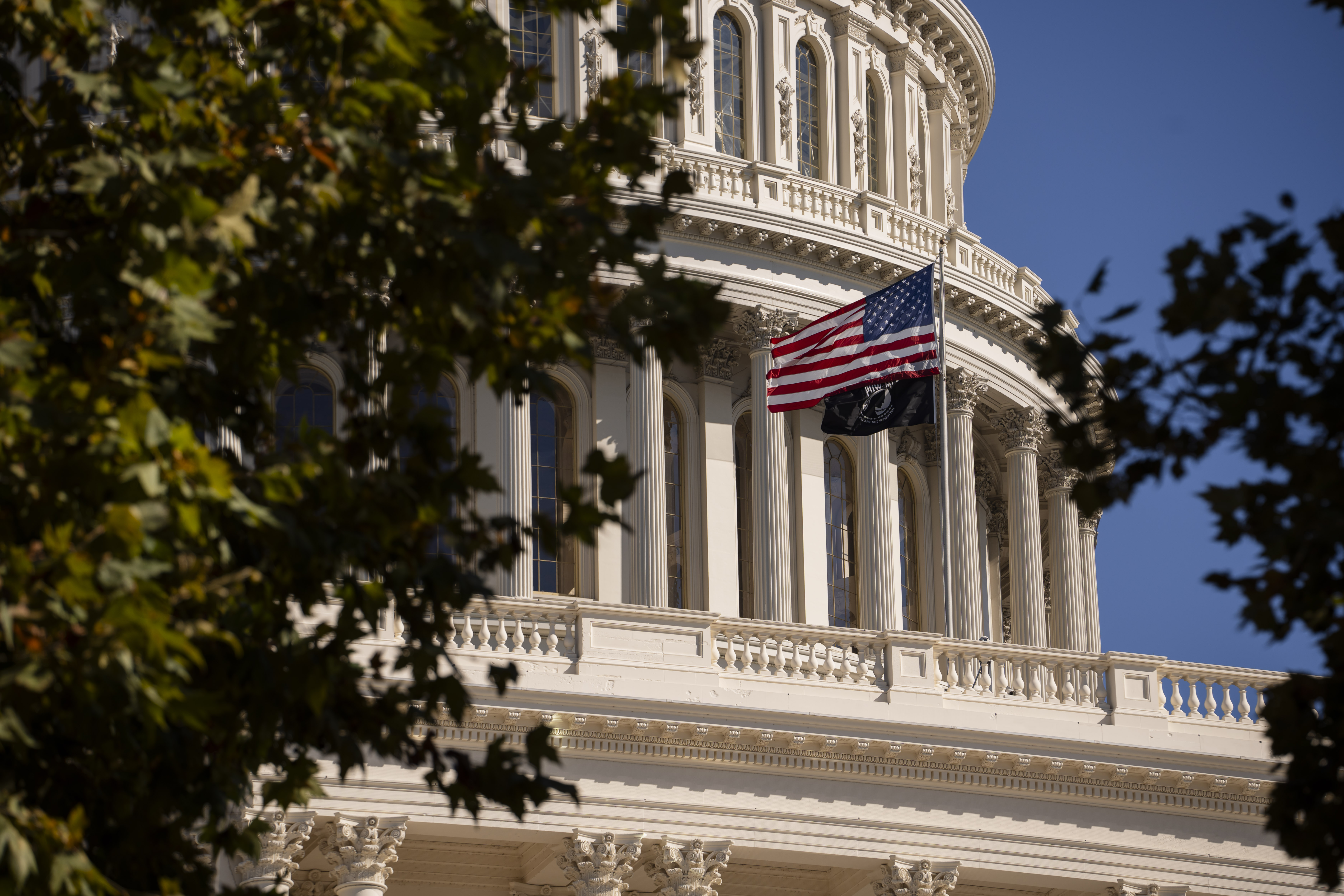Get caught up on the latest Trump cabinet picks here. Yesterday the president-elect made three high-profile selections: Matt Gaetz for attorney general, Tulsi Gabbard for director of national intelligence, and Marco Rubio for secretary of state.
Here’s also 5 things to know about Pete Hegseth, Trump’s choice for secretary of defense.
Track non-cabinet administration appointments here.
With Republicans projected to retain control of the U.S. House, the GOP has won a trifecta in the federal government for the first time since 2016.
Although The Associated Press had yet to call all House races, it projected as of about 10:30 p.m. on Nov. 13, Republicans would keep at least 218 seats in the lower chamber—the minimum required for a majority. In the Senate, Republicans will hold 53 seats in the next Congress.
While Trump also had a trifecta in 2016, his party was more divided at that time. Just before that election, Republican leaders such as House Speaker Paul Ryan and Senate Majority Leader Mitch McConnell (R-Ky.) were openly critical of Trump.
This time, the party is far more united behind the man who has ruled Republican politics for nearly a decade, although Trump will likely still face challenges from some members of his party in both chambers.
Here’s what to expect from an incoming Republican-dominated federal government.
White House
Many of Trump’s promises can be fulfilled by executive order on day one, such as immediately reinstating many of his immigration-related executive orders that were overturned by President Joe Biden. He can also make many immediate changes to energy and trade policy, both of which he has promised to pursue aggressively.
That could include a 60 percent tariff on China and a 10 percent tariff across the board to protect U.S. manufacturing.
“Legally, it’s absolutely feasible,” Nazak Nikakhtar, a former Trump Commerce Department official, told The Epoch Times, saying Trump could impose such rates on China on his first day.
She predicted that discussions about revoking China’s permanent normal trade relations status would accelerate among Republicans.
Trump has also vowed to make broad changes to immigration policy, including a mass deportation of illegal immigrants currently in the country. Existing laws give the president broad discretion over the enforcement of immigration laws.
Other agenda items will require the approval of Congress.
While narrow margins in the House could potentially cause some headaches for Trump’s agenda, Republicans’ edge in the Senate will make it easier for him to confirm appointees and fill any vacancies that may arise on the Supreme Court.
Trump has made clear that passing a broad tax-cutting bill will be one of his highest priorities.
The Tax Cuts and Jobs Act of 2017, a bill signed during Trump’s first term that cut tax rates across all income levels, expires in 2025. The Tax Foundation estimated that 62 percent of households would see a tax increase in 2026 if the provisions of the TCJA were allowed to expire.
Senate
Senate Republicans enter the 119th Congress with 53 seats, as they return to the majority after four years in the minority. With the tie-breaking vote of Vice President-elect JD Vance, Republicans can spare up to three defections on major votes.
However, many legislative items will be impossible to pass through the upper chamber because of the 60-vote filibuster threshold required to advance most bills—a threshold neither party has achieved in more than 15 years.
This will also be the first Congress since 2006 where Republicans aren’t led by Sen. Mitch McConnell (R-Ky.), who announced earlier this year that he wouldn’t seek another leadership term.
Instead, Senate Republicans will be led by Sen. John Thune (R-S.D.), an erstwhile Trump critic now responsible for helping to carry out his agenda.
In a statement following his election as incoming majority leader on Wednesday, Thune vowed to further Trump’s agenda, saying, “This Republican team is united behind President Trump’s agenda, and our work starts today.”
Thune said that will extend to Trump’s executive nominees, telling reporters that the Senate would “do everything we can to process his [nominees] quickly.”
With the filibuster intact, Republicans will need seven Democrats to advance legislation, such as nationwide concealed carry, merit-based immigration reform, and Social Security reform.
The arithmetic is a bit more forgiving for Republicans when using budget reconciliation, a highly restricted type of legislative package that can advance through the Senate with a simple majority.
This type of package could also allow the GOP to raise the debt ceiling without Democrat support.
The filibuster also won’t be a concern in confirming nominees to executive and judicial branch positions, as these confirmations require only 50 votes. More than 1,200 positions in the executive branch require Senate confirmation.
Control of the Senate allowed Trump to reshape the judiciary during his first term.
House
Currently, the AP projects that Republicans will enter the 119th Congress with 221 seats to Democrats’ 214.
That margin will be further narrowed, at least temporarily, by the departure of Reps. Elise Stefanik (R-N.Y.), Mike Waltz (R-Fla.), and Matt Gaetz (R-Fla.), who are slated to take roles in the Trump administration.
As far as the House speakership, Johnson was nominated by the GOP conference for the position on Nov. 13 after running unopposed. He. must now win the majority of the full House in the next Congress to retain the gavel.
During the current Congress, some of Johnson’s decisions—including those related to government funding, the Foreign Intelligence Surveillance Act, and stopgap spending bills—alienated prominent conservatives such as Rep. Marjorie Taylor Green (R-Ga.).
However, the current projected margins give Republicans little leeway for defections on important votes such as those related to tax law. They’ll need near-perfect consensus on most bills to pass them over Democrats’ unanimous opposition.
The lower chamber will be instrumental in crafting Trump’s proposed tax legislation.
This may be challenging for the ideologically divided Republican conference, which is split between conservatives and moderates.
Many of Trump’s agenda items can be passed through budget reconciliation legislation, which Johnson said Republicans have been considering for the past year. But even these bills would require most Republicans to agree in order to send anything to Trump’s desk.









